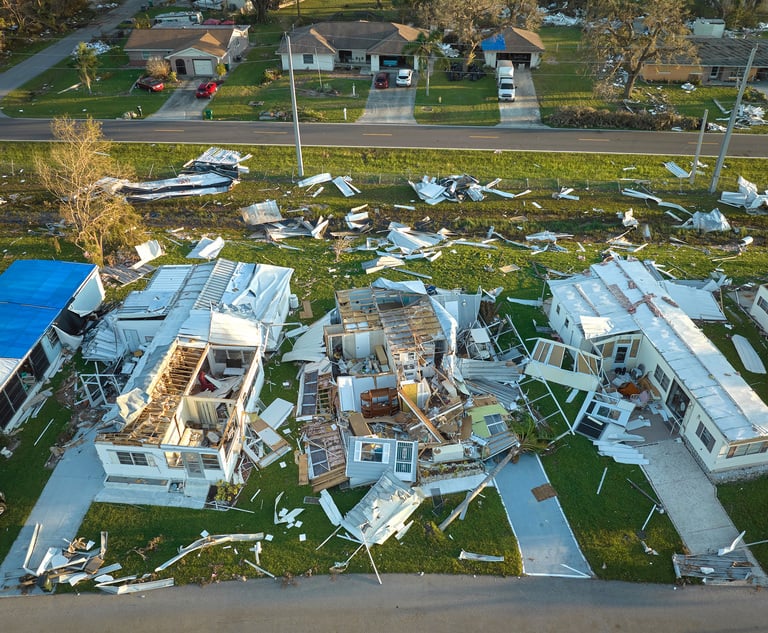In his new book, “Average is Over,” Tyler Cowan maintains thatAmerica is dividing itself into two main groups.
|The top will be 10 to 15 percent of achievers, whose selfmotivation and mastery of technology will allow them to soar intothe future. Then there will be, well, everyone else.
|Might the vocation and profession of claims likewisestratify itself, with tech-savvy winners and more bumbling losers,where the keys to success exist largely in technologicalfluency and literacy? To address that issue, we pondered thequestion of what basic technology skills are essential for today'sclaims professional. Does it involve knowledge of MSOffice? How about using spreadsheets or conducting fruitfulinternet searches? Or, any of these really necessary, so longas an adjuster possesses good claims-handling subject-matterknowledge and skills?
|Valued Low-Tech Skills?
|Many still see low-tech skills as primary. Denis Smith, a VP andexecutive adjuster at Cunningham Lindsey (Vancouver B.C.) feelsthat a strong insurance knowledge of policy language, principlesand practices is essential. The rest are practical tools to helpcommute the process to a result. He cautions that, “withoutunderstanding doctrines of proximate cause, proper policyinterpretation/application plus strong people and communicationskills, you just don't get there.”
|Michael Spence, a claims training specialist in the Buffalo, NewYork area believes that requisites include the ability to searchthe Internet on an advanced level, 40 words-per-minute typingskills and Microsoft Office proficiency: “Too few companies providereal Microsoft word training, ” he says. ”So adjusterswaste countless hours by knowing only a small portion of what thistool can do.”
Each company has its own preferred tech-skills that it wants itsworkforce to possess. Alexis Neel, an independent adjuster inthe Atlanta, Georgia area, wants to know more than whatever thecarrier requires him to know, in order to be that much morevaluable in today's market. Neel regards the “must haves”in claims adjusting as MS Office Suite, mainly Word, Outlook, Exceland maybe PowerPoint, then Xactimate, and two other estimatingprograms (Symbility and Simsol), along with intelligent internetsearch skills.
|Techno Navel Gazing?
|Are there limits, however, to just how tech savvy adjustershould be? At some point, does technological navel-gazing obstructthe fundamentals of sound claims handling? Christopher Reid is anindependent claims consultant in the Houston area and former VP ofClaims at Brit Global Specialty USA. Reid believes lineadjusters should not be creating Access databases or preparingPowerPoint slides.
|“They should have Word and Outlook skills, and probably someExcel skills,” he says. “Beyond that, they should be able to learnand use whatever claim-handling system and/or estimating softwarethat their employer uses, and be able to conduct Internetsearches.”
|Reid, however, does not equate technology proficiency toadjusting proficiency: “I can go to any middle school and findsomeone more technology proficient than I am,” he adds.
|Barry Zalma, a veteran claims expert, attorneyand contributor to PropertyCasualty360, urges theindustry not to under-value low-techattributes. ”Technologically,” he says, “the adjustershould be able to type using all ten fingers, understand and useeffectively the insurer's computerized log system; understand howto estimate—using computer programs—the cost to repair buildingsand vehicles; and most importantly how to read and interpret aninsurance policy.” If adjusters have claims-handling skills,Zalma adds, the only technology they need is a pencil, paper and atelephone and the ability to operate a vehicle to get the adjusterto the scene of the loss.
|Necessary “Soft” Skills
|Meanwhile, Jennifer Peranteau, vice president with Wardlaw ClaimService, sees soft skills as critical for industry success. “Youmust be able to relate to people to succeed in claims, whether youare a fresh trainee learning the adjusting ropes or are the vicepresident of claims,” she says.
|Peranteau sees estimating software with ads boasting that“anyone” can be an adjuster. “I have not found this to be true,”she counters. “You must have great people skills, be able to thinkon your feet, and be willing to get dirty.” Adjusters mustalso possess certain technical skills (including a solid grasp ofmath and science), software skills, and the ability to realize whena price does not make sense and thus requires further probing.“They call it 'adjusting' for a reason,” Peranteau adds.
|Mark Smith, vice president and Claims Manager at Frye Claims inthe San Francisco, California area, is a fan of technicalskills, as well. However, he cautions that, as an industry, we“must acknowledge that basic technology is now so prevalent that ithas become essential.” An adjuster who can't do a simplespreadsheet or internet search is simply creating more work forsomeone else, who will have to do it for them. “We pay for thetraining for some of our experienced field staff because clientsexpect to get their data and reports electronically these days andwe are in the business of meeting their expectations,” Smithsays.
|Quick Studies Needed
|None of this suggests that the claims professional must possessall of these skill areas simultaneously. It would be quitedifficult— if not impossible—to find a claims person fluent inevery single one of these technologies. However, it would also bechallenging to place a claims professional lacking familiarity withany of them. To an extent, the issue is one of adaptability, theability to learn quickly. Can a claims professional become a quickstudy to rapidly get up to speed on the software, applications, andtech tools used by his or her organization?
|Given the brisk turnover within the claims industry, adjustersand other claims professionals must realize that each company hasits own preferences about software, applications, and hardware. Forexample, some companies may use Microsoft Outlook as the defaulte-mail manager. Others may use Lotus Notes. Some organizations maybe tethered to BlackBerry. Increasingly, however, more are inclinedto use iPhones or Android devices. Some may use proprietary,bespoke databases as their claims management information systems.Others may use off-the-shelf software, with some tweaks.
|Whatever software, applications or hardware insurers or claimorganizations use, today's successful claims adjuster needs topossess the flexibility, adaptability and willingness to gainproficiency in the tools at hand to get the job done. To an extent,this quality may be more important than subject matter expertise onany piece of software or hardware.
|Clearly, today's adjusters cannot be Luddites. They musthave a comfort level with both software and hardware to effectivelyfunction in their jobs. This does not mean that machines areready to replace claims adjusters, although perhaps some CFO's and“bean counters” might fantasize about suchpossibilities. Until they invent an app that replaces living,breathing claim adjusters, the successful claim practitioners willblend high-tech fluency with high-touch soft skills. In 2013 andbeyond, that is likely to be the winning combination.
Want to continue reading?
Become a Free PropertyCasualty360 Digital Reader
Your access to unlimited PropertyCasualty360 content isn’t changing.
Once you are an ALM digital member, you’ll receive:
- All PropertyCasualty360.com news coverage, best practices, and in-depth analysis.
- Educational webcasts, resources from industry leaders, and informative newsletters.
- Other award-winning websites including BenefitsPRO.com and ThinkAdvisor.com.
Already have an account? Sign In
© 2024 ALM Global, LLC, All Rights Reserved. Request academic re-use from www.copyright.com. All other uses, submit a request to [email protected]. For more information visit Asset & Logo Licensing.








